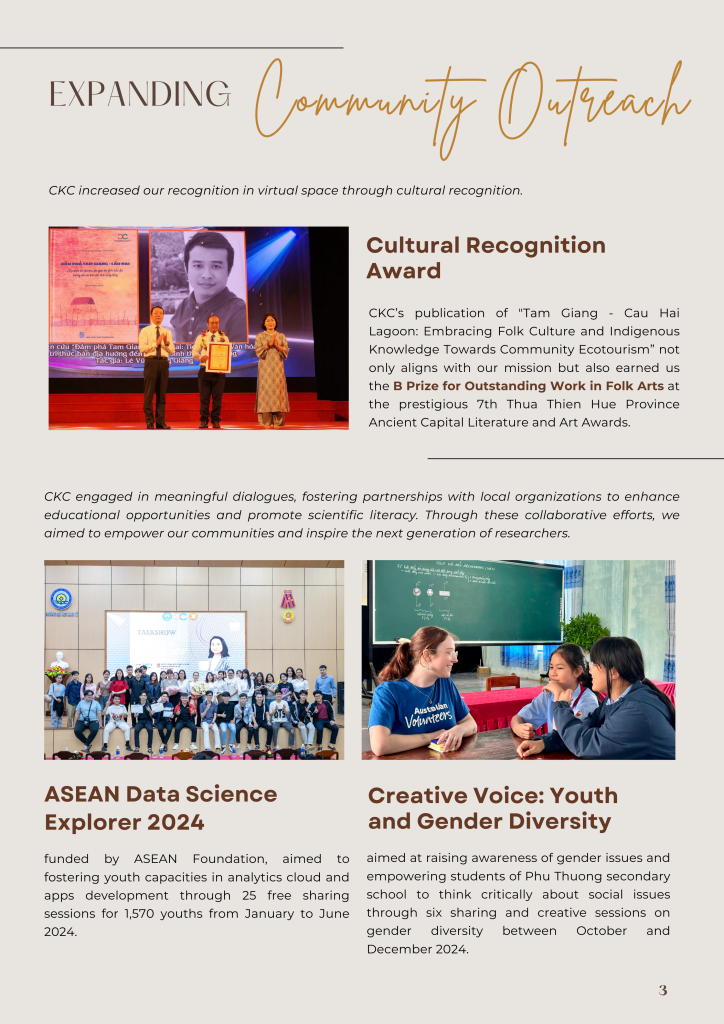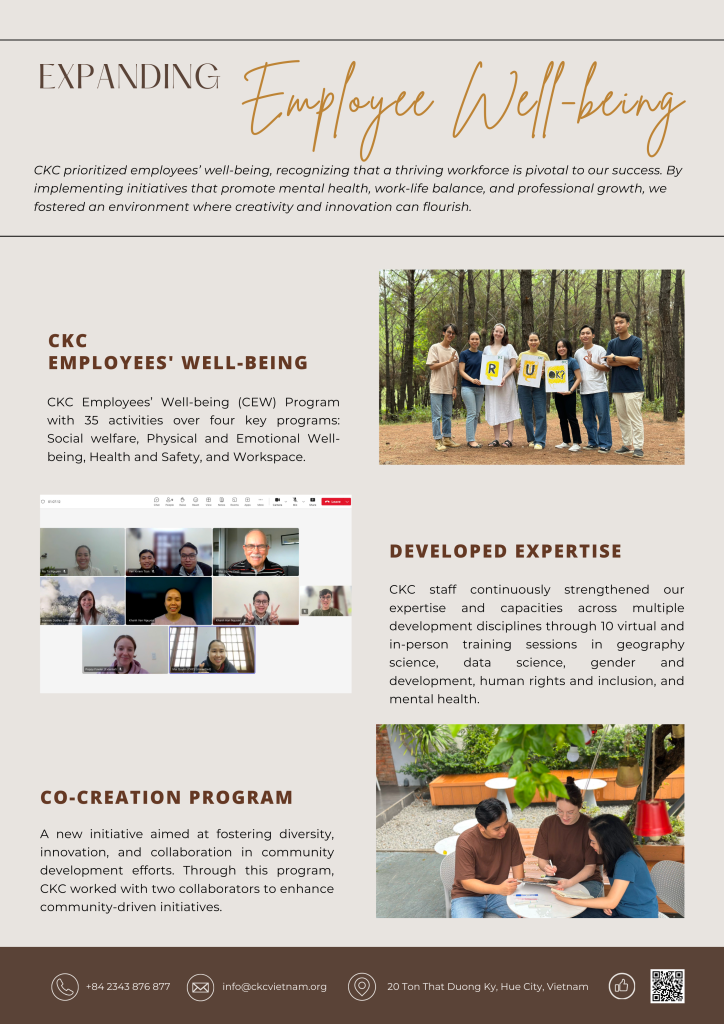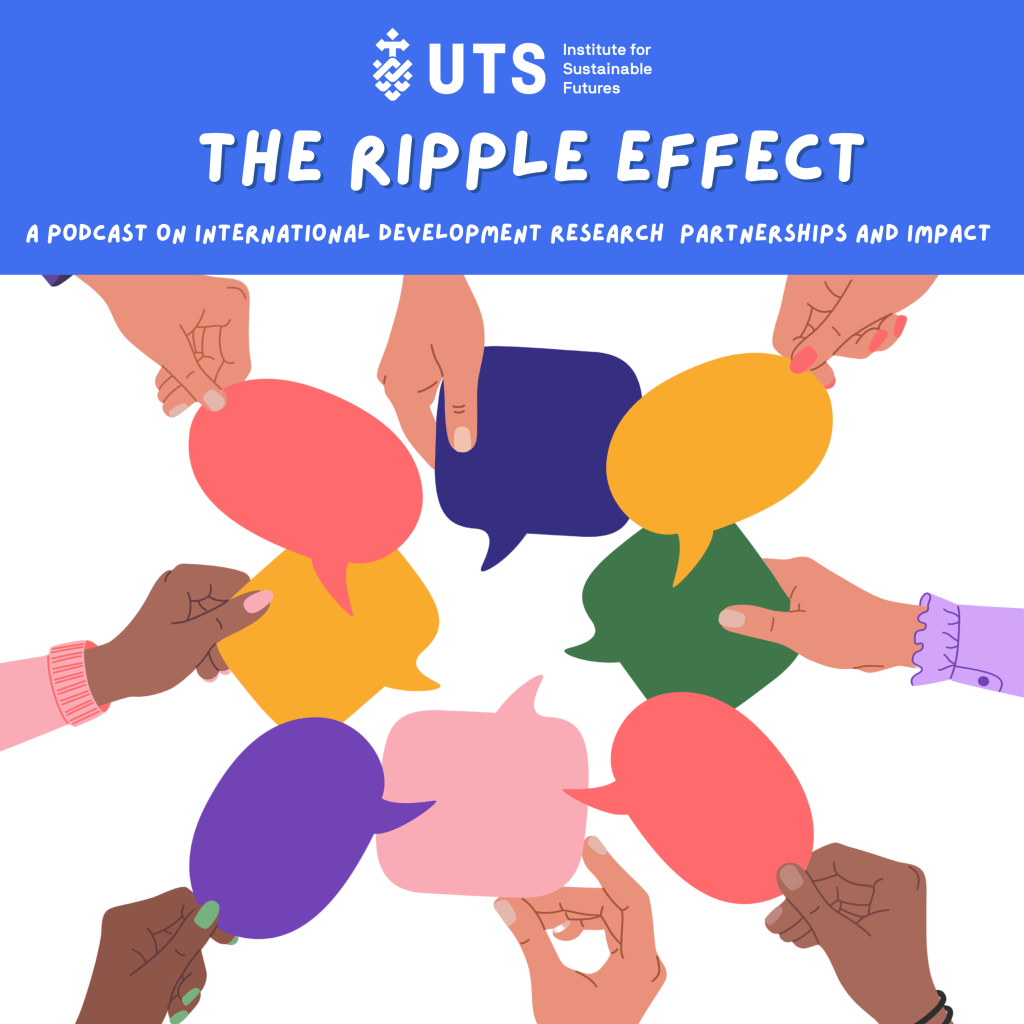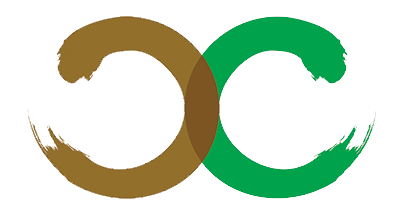- Expanding Research Horizons;
- Expanding Consulting Services;
- Expanding Community Outreach;
- Expanding Partnerships; and
- Expanding Employee Well-Being.







We are excited to announce CKC’s feature on the inaugural episode of The Ripple Effect podcast from University of Technology Sydney, aired on 28 November 2024.
In this inaugural episode titled “Establishing Common Ground – Insights into Organisational Capacity Strengthening from Participatory Action Research”, Dr. Mai Le Quyen, CKC’s Deputy Director, joined representatives from Vietnam, Indonesia, and Sri Lanka to share key research findings for the first year from our Participatory Action Research on Organizational Capacity Building. Together, they discussed effective strategies to boast international cooperation in strengthening community-based organizations.
Tune in to the first episode of the series of live, interdisciplinary dialogues to explore the role of partnerships in international development and how we’re creating lasting, positive changes across borders.
Listen today and be part of the Ripple Effect. Stay tuned for more expert insights in future episodes. Let’s create a ripple effect of positive change!
Tune in to the Podcast here.

- Delivering Gender Equality Awareness Initiatives: We strive to engage with communities about the importance of gender equality and the impact of violence against women.
- Hosting Gender Transformative Workshops: We provide workshops for individuals and organizations to foster understanding and skills that challenge gender norms and promote equality.
- Disaggregating Research and Data by Sex: We ensure our research reflects gender disparities, helping to inform effective interventions and policies.
